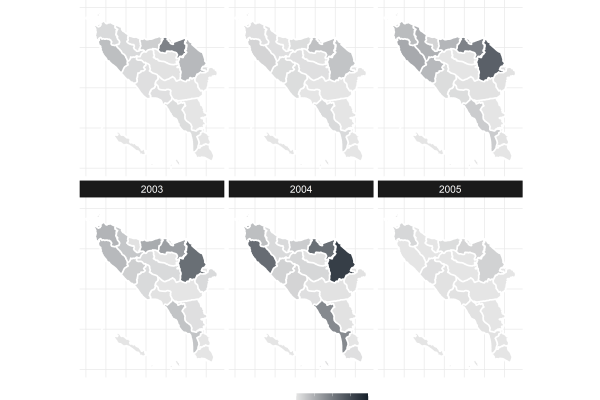
Fri, September 25, 2020
12:00 pm - 1:30 pm
Zoom
Societies that experience civil conflict often have limited state and bureaucratic capacity. What role do state bureaucracies play in the post-conflict period? How does democratic transition influence this role? This discussion focuses on these questions and others related to the state and bureaucracies in post-conflict societies.
